All of a sudden the father of the two guys we were dealing with stood up, left the hall and came back with a rifle in his hands.
Ulrike Reinhard, a soi-disant futurist and social entrepreneur, was relieved to leave India the first time she came for a conference. Besides the ‘harsh and irritating extremes’ the dirt and the crowd of Delhi got to her. But she also landed an ‘offer’ to set up a school in Khajuraho which she eagerly took up unaware that it was rooted less in learning and more in lucre. A face palm trend seen widely today – attempt by moneybags to tap into the multi-billion dollar education sector using a popular/white face as a front. Protracted negotiations proved futile leading to intimidation, assault and courtroom battle. Returning from home in Germany some time later, she hit the road on her Bullet motorcycle riding up from south to the Himalayas. A journey of discoveries that lasted nearly a year before plunging headlong into what she had set her heart on – a social experiment in the heart of rural India.
‘Remote: The rural changemakers of Janwaar’ documents with a lot of chutzpah and sensitivity her struggles to set up a skatepark in Panna, a remote village in the central Indian state of Madhya Pradesh. ‘Janwaar Castle’ which it was eventually called, is her experiment to engineer social, cultural and economic change via the medium of counterculture. And skateboarding epitomises it for her more than anything (see interview).
Janwaar Castle is like the Internet which plays beautifully if you let it play.
With connectivity still a challenge in India Sugata Mitra’s Self-Organised Learning Environment can work only in urban or peri urban localities. Ulrike and a partner set up two such ‘Hole in the Wall’ learning stations in Khajuraho before moving base to interior Panna. While these were eventually abandoned following the legal fracas, their construction, she claims, gave her a ‘glimpse of what it means to build something in India’. Janwaar Castle eventually took off with help from a well-meaning local and blessings of the Maharaja of Panna. A dozen skateboarders from seven countries chipped in with voluntary expertise and labour; along with paid help from villagers, the skatepark was up for shredding in under four months. The inspiration was Skateistan, the international non-profit that uses skateboarding for youth education and empowerment. However, unlike Skateistan, Ulrike decided to keep her skatepark unattached to a school or fence it. Cows and goats had to be chased away initially but over the years even they learnt to stay out.
Keeping the park open was important symbolically as well. This openness means not catering to any defined programmes but open to personalised and individual learning paths. Despite the clamour for fixed teaching modules from her partners, Ulrike insisted on the ‘open sandbox’ model which essentially meant playing it by the ear. Taking cues from what happened at the skatepark and around it. And this unpredictability, much like the Internet, has held them in good stead. Depending on each kid’s field of interest, Janwaar Castle enrols them in tailor-made learning labs which are run by partner organisations. This model is worth emulating as vocational training is the need of the hour.
In Janwaar village Asha’s trip was a major event. Not only would she be the first person to get a passport and leave the country, but she was a young girl, and an adivasi to boot!
Sport has been the carrot of many changemaking organisations which focuses on inspiring children from impoverished belts to go to school. One NGO uses football in Mumbai. There is SISP in Kovalam, Kerala, which employs surfboarding. Way before I met Ulrike, I knew SISP benefactors and many beneficiaries. And I knew it worked. While all of them function as a catalyst to regular schooling what makes them stand out are their unceasing efforts at understanding creativity and enterprise among the students. SISP grads find lucrative employment as surfboarding instructors to tourists who stay in nearby seaside resorts. At Janwaar Castle there are sports and creative, dance and agriculture labs. When a Janwaar kid is ‘ready to move’ individual learning modules are designed to guide them on their way lasting from few hours to days. Though this growth is largely organic the beauty of the model is that it is scalable as well as sustainable.
Inspiring stories abound in ‘Remote…’ of children breaking boundaries of tradition, shackling expectations and stifling patriarchy. Ulrike with the typical European side eye to the unequal power dynamics between different castes in the village, evocatively outlines how the skatepark has succeeded in breaking down barriers. Primarily the inferior treatment meted out to girls: the code of conduct mandates that girls be given preference in the park. Asha and Abhilasha are among the kids who have gone abroad and returned as role models for others. Tales of empowerment and little eye-misting victories over feudal mindsets, this is a tribute to the role disruption can play in the transformation of a community.
The book is divided into two sections – the skatepark through the eyes of the villagers and visitors. Both abound in heartwarming and outspoken narratives embellished with lavish photographs. Probably harried timelines, some printer’s errors can be spotted, albeit a bane of the critical eye. But what comes in the way of the tell is a feeling of hastily put together. But the show, I repeat, is squad goal.
We couldn’t believe what we saw. The Janwaar kids were so proud and acted as great ambassadors. Some of the kids didn’t even speak the same language, but it didn’t matter, they shared the language of skateboarding.
I met Ulrike on a few occasions in Delhi. In her riding boots, jeans and cambric tops she conforms to the doxa of a fiery activist. The last time was at a popular bistro in GK 1 after ‘Remote…’ was published. While signing me a copy, she also spoke of why skateparks and moving on.
1. The skateboard park was meant to ‘disrupt’ and ‘attract’ and it succeeded. Besides skateboarding do you think any other sport would have made the mark?
Tricky question. Regarding sports I could pledge 100 per cent for skateboarding – because skateboarding is counterculture, against mainstrain, anti-establishment – all the things you don’t have in the village.
Would anything else work? I am sure there are ways as long as they are inclusive (meaning not for specific groups), if they are open in the process and the outcome and if they rely on the network principles I have mentioned in the book.
2. What do you think about the replicability of the model?
I am pretty sure that this model is replicable – if set up as open and networked based model.
3. You are involved in setting up skateparks in other places? Where do you come in?
I am involved in setting up two more – one in the Odisha-Chhattisgarh border and another in Rajasthan. My role is to just help set them up, I will not get involved in rurrning these places. Janwaar requires already much more time than I actually have. So with design thinking workshops we ‘prepare’ the next places to become successful. We involve everyone in these workshops who want to be involved and then see where it goes. The workshops themselves are designed as open processes.
4. ‘Janwaar Castle, like the Internet, will play beautifully if you let it play.’ What could come in the way of its playing out?
Many things can come in the way – the beauty of networks though is, that they always will balance out. Sooner or later. So I am not at all concerned as long as I act according to my principles.
5. What are the volunteering options for someone to be associated with Janwaar Castle?
We are happy if volunteers come in. They should have a very precise project they want to work on with the kids/villagers. And they should stay at least for 2 – 4 weeks. We don’t pay anything, we might be able to provide a place to stay.
If you are in any way connected with development or just interested in some spectacular work happening in the country, get a copy of this book. Write to hello@rural-changemakers.com
Photographs courtesy: Rural Changemakers/Ulrike Reinhard


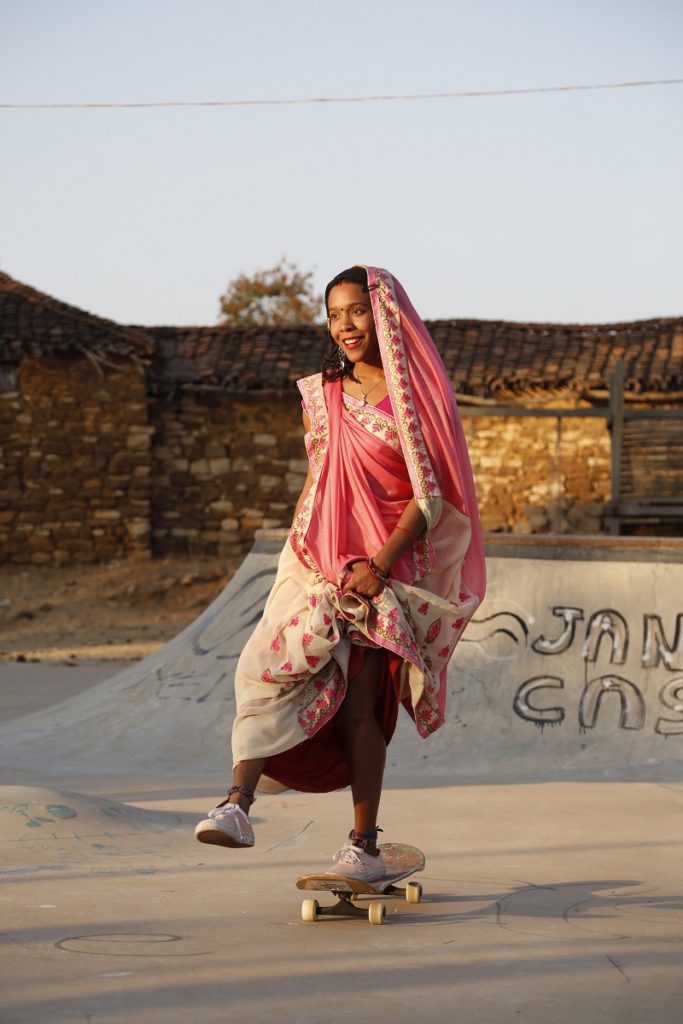
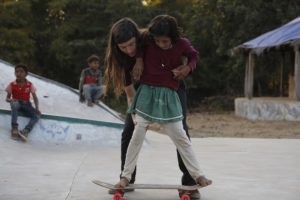
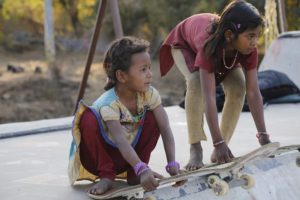
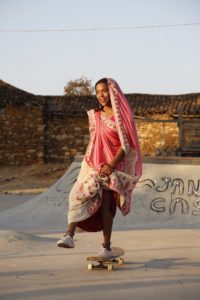
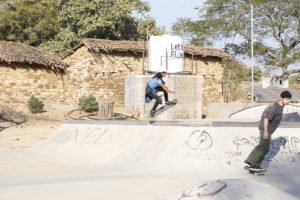
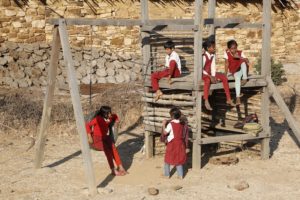


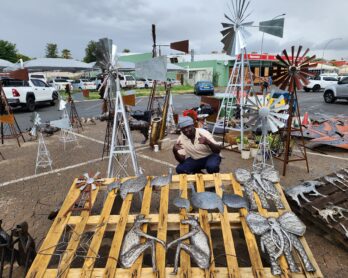



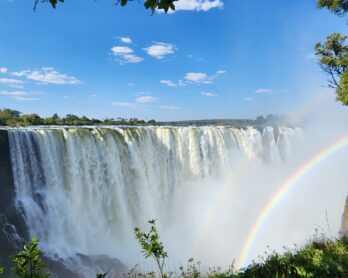
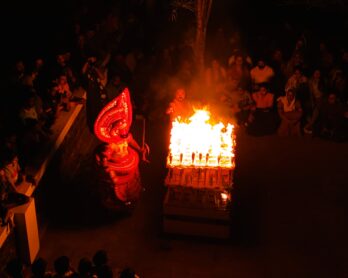
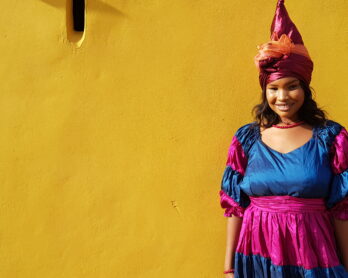
Nice post with great pictures.
Thank you.
Nice post. Thank you so much for sharing a great information!
My pleasure. You are welcome.